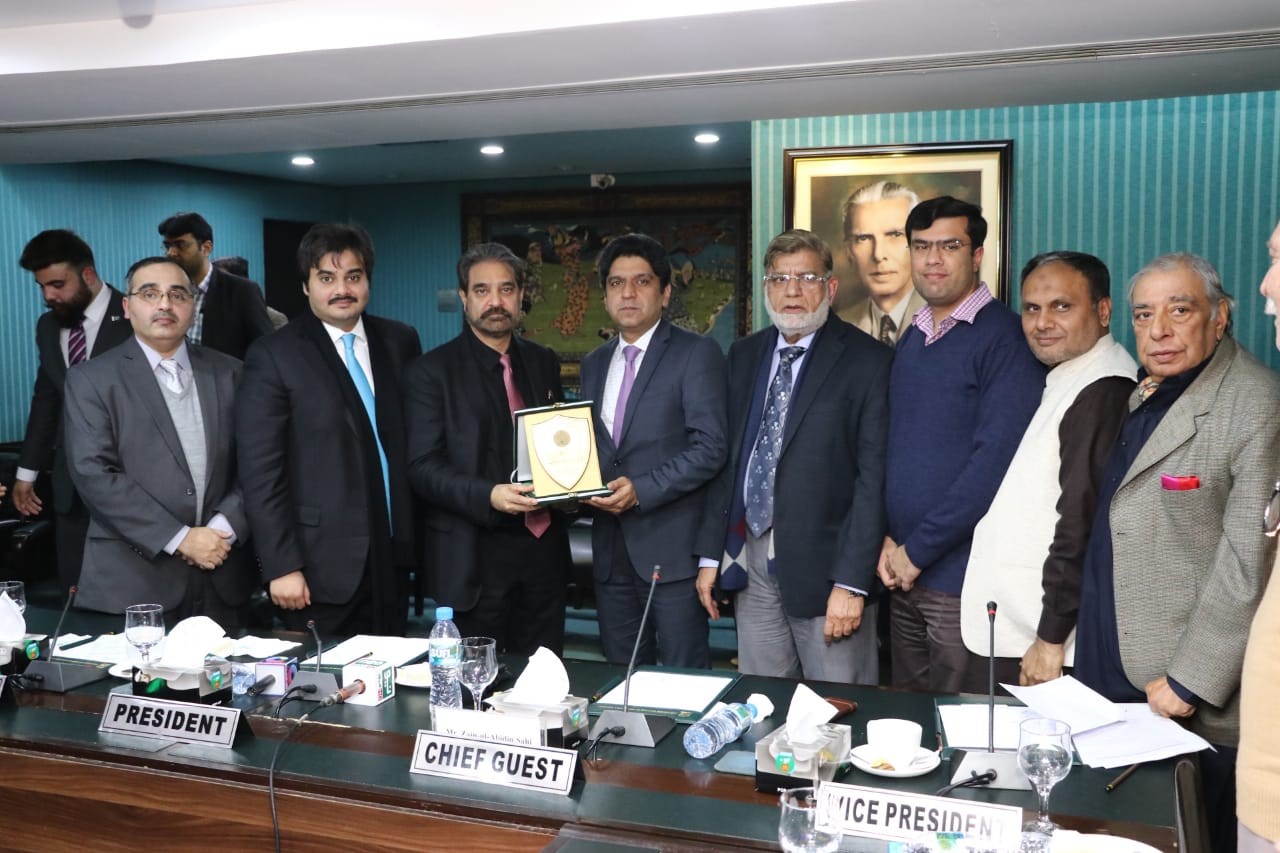PRA To Establish Stakeholders Committee For Policy Decisions Over Tax Matters
LAHORE– Punjab Revenue Authority (PRA) wants to form a committee having representatives from the Lahore Chamber of Commerce & Industry and other sectors to bridge the community gap.
This was stated by the Chairman PRA Zain-ul-Abidin Sahi while speaking at the Lahore Chamber of Commerce & Industry on Friday.
LCCI Senior Vice President Ali Hussam Asghar, Vice President Mian Zahid Jawaid Ahmad, former President Mian Muzaffar Ali and former Vice President Kashif Anwar also spoke on the occasion while Commissioner Enforcement PRA Shahzad Mehmood Gondal, LCCI Executive Committee members Wasif Yousaf, Sheikh Sajjad Afzal, Fiaz Haider were present in the meeting.
Chairman PRA said that the proposed committee would have regular meetings so that policy decision can be made after due consultation with the stakeholders. An application has already been launched to have direct liaison with the taxpayers.
He said that there is a lot of development on tax harmonization between the provinces. Monthly meetings are being held between the representatives of the provinces and they have agreed on some matters.
He said that a system is being designed under which taxpayer would file a single return whether he is working in one or more than one provinces. Automatic system would decide the tax segregation.
He said that the provinces were expressing apprehension that it may affect the Ease of Doing Business Index therefore this system would be implemented sector wise.
He said that Telecom sector has been chosen at the first phase. He was optimistic that system would be in working during the ongoing calendar year.
To a question, Chairman PRA said that provincial tax are already being collected through online banking channels while facilities of credit and debit cards would also be available soon.
He said that uniformity in sales tax in all provinces is very difficult. He said that Punjab Infrastructure Development Cess (PIDC) cannot be abolished but a middle way can be found in consultation with the stakeholders. “We want to bring down the rate of litigation’, the Chairman said.
Zain ul Abideen Sahi said that the authority is performing well by registering over 23 percent revenue growth in the first six months of ongoing fiscal year despite economic slowdown.
LCCI President Irfan Iqbal Sheikh said that services sector is the most important sector of the economy with a share of around 61% in the GDP. We are of the view that those service providing industries which have a reasonable contribution in the GDP should be given the benefit of concessionary tax rate.
He said that there is a dire need of harmonization among the provincial and federal tax collecting agencies. If a service provider is resident in Punjab, and the service delivery to a service recipient is in Sindh, then the service provider is required to deposit sales tax with PRA.
However, the service recipient still remains liable to sales tax recovery by Sindh Revenue Board (SRB) under Sind Sales Tax Services Act 2011, and vice versa. In this regard, provincial revenue authorities should agree on jurisdictions and common rules. Issues of ‘origin’ and ‘consumption’ on services should also be clarified.
The LCCI President said that currently revenue collections of the Province of Punjab fall under Punjab Revenue Authority, (PRA), Excise & Taxation and Board of Revenue (Punjab). To enhance the ease of doing business in Punjab province, it is proposed that the responsibility of collecting all tax revenues should be given to PRA.
He said that Sales Tax on services is being charged at different rates by Sindh Revenue Board (SRB) and Punjab Revenue Authority (PRA) which creates an environment of competition among the provinces.
Uniform rate of Sales Tax on services should be charged by all the provinces. The high tax rates in Punjab results in shifting of various services providing industries to other provinces.
Irfan Iqbal Sheikh said that Imposition of Punjab Infrastructure Development Cess (PIDC) has further burdened up existing taxpayers instead of broadening tax net. PIDC is an indirect tax as it is being charged on movement of goods including raw materials and has proved to be an impediment to economic growth of the province.
Business people have started clearing their consignments in other provinces to avoid this tax which would ultimately hurt businesses of clearing agents and transportation companies that provide employment to thousands of people and contribute sizeable amount to national exchequer.
We firmly believe that PIDC Act is causing huge net revenue losses to provincial kitty. In this regard, you are requested to please take up the matter personally for the withdrawal of said cess to give relief to the business community of the Punjab.
He added that frequency of taxes needs to be reduced. Filing of returns of Sales Tax on Services should be allowed on quarterly / six monthly basis. All payments related to PRA should be accepted through ‘Credit card / debit card, direct debit or using internet banking’.

